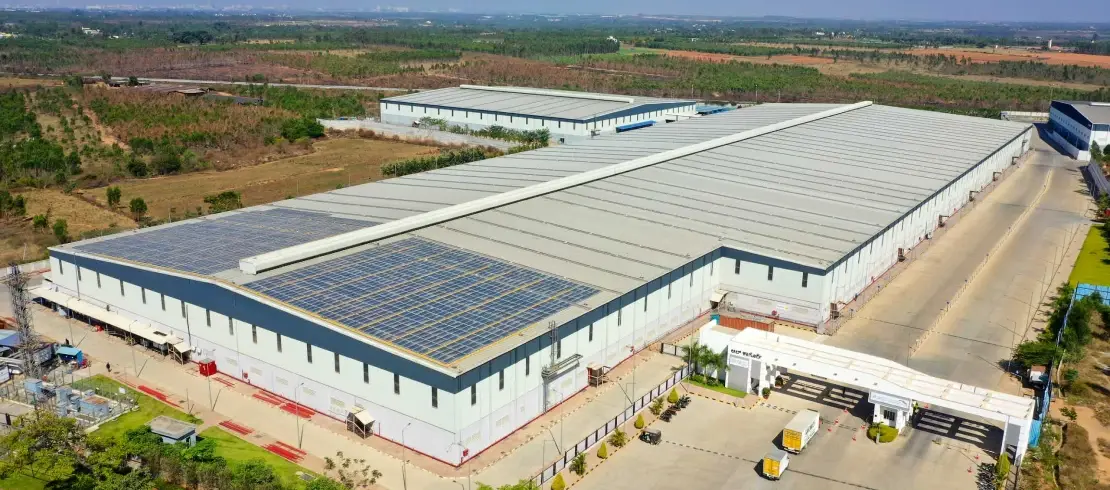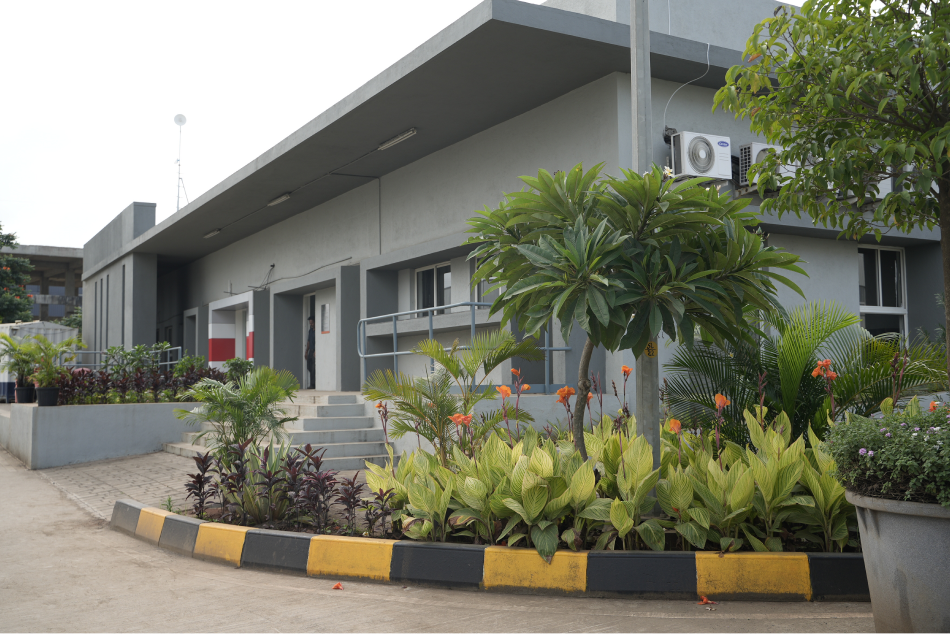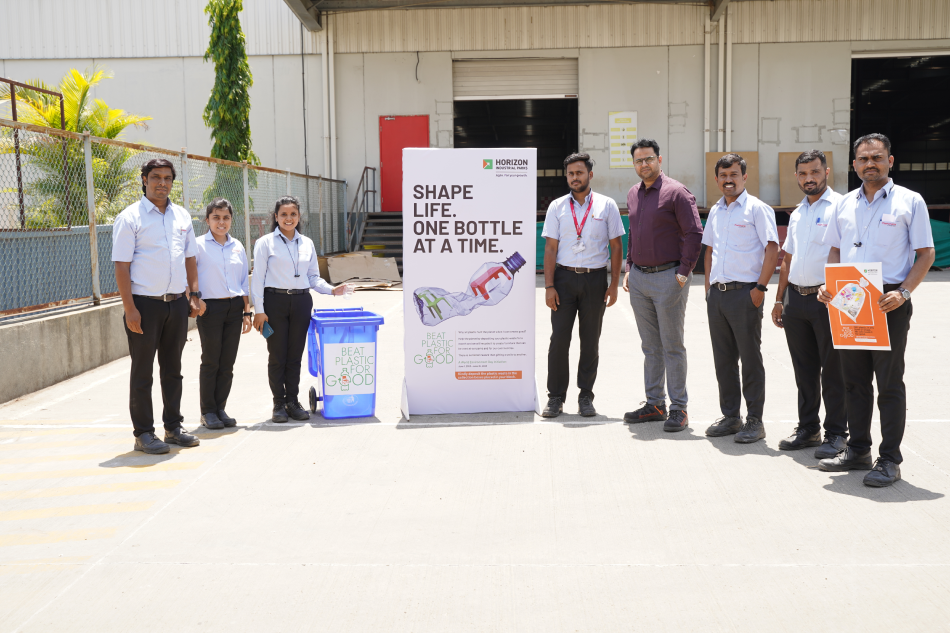India’s IRE Sector: Big on Sustainability

Sustainability goals pursued by Horizon Industrial Parks and other industry incumbents extend far beyond meeting business requirements; they represent the sector’s commitment toward the natural environment and humanity.
Industrial real estate (IRE) is a commercial asset class used for industrial purposes, including production, manufacturing, assembly, warehousing, data storage, and product distribution. IRE properties are typically known for their large size, high ceilings, heavy-duty construction, and convenient access to transportation infrastructure such as highways, seaports, and airports.
IRE has been witnessing rapid growth in India in recent years, having gained momentum after the implementation of the nationwide GST in July 2017. The simplified tax system made it easier for companies to transport goods across state borders, consolidating warehouses and eliminating the need for multiple warehouses to adhere to tax regulations.
A recent Colliers report noted that in 2022, the demand for industrial and warehousing space in the top five cities of India increased by 8 percent compared to the previous year, reaching a total of 24.5 million square feet. The average quarterly leasing remained robust throughout the year, rising from 5.7 million square feet in 2021 to a strong 6.1 million square feet in 2022(1). According to property consultants Knight Frank India, transaction volumes in the country’s industrial and warehousing real estate (IRE) sector are set for a rapid pace of growth, with a compounded growth rate of 19 percent till the fiscal year 2026(2). This growth is primarily fueled by the expansion of e-commerce and the manufacturing sector. India’s leading destinations for IRE development include Mumbai, Delhi-NCR, Bengaluru, Chennai, Pune, and Hyderabad.
IRE’s pivotal role in the industrial sector puts on it a great deal of responsibility toward meeting its sustainability goals. The industry does it through the following measures spanning the sector’s planning, design, and management practices:

1.Design for sustainability.
The term “Design for sustainability” in the industrial real estate sector refers to implementing various techniques and initiatives to reduce the environmental impact of buildings and promote sustainable development. This includes using environment-friendly and reclaimed construction materials, provisions for rainwater harvesting, designing buildings to reduce energy consumption, and waste management. Most modern factories and warehouses built in recent years follow this practice.
2.Green building certifications
Green building certifications provide a framework for evaluating and improving the environmental performance of buildings. In addition to their sustainability benefits, they provide cost efficiency and increased business competitiveness both for owners and tenants due to their lower operating costs owing to energy efficiency, streamlined compliance, which includes tax incentives and funding opportunities, and higher occupancy rates(3).
An example is the Indian Green Building Council (IGBC), an initiative launched by the Confederation of Indian Industry (CII). IGBC, which has Horizon Industrial Parks as one of its founding members, offers various sustainability services, including developing new green building rating programs, certification services, and green building training programs(4).
Other globally recognized green building certifications include LEED (Leadership in Energy and Environmental Design), granted by the Green Building Certification Institute (GBCI), Green Star, founded by the Green Building Council of Australia; and BREEAM (Building Research Establishment Environmental Assessment Methodology) granted by UK-based Building Research Establishment (BRE).
3.Energy efficiency
IRE developers implement energy efficiency in the design and implementation of buildings through energy efficiency retrofits (EERs), day-light-optimized building footprints, and natural light to minimize the use of artificial lights. An increasing number of developers are using sustainable HVAC (Heat, Ventilation, Air Conditioning) systems such as geothermal heat pumps, which the Environmental Protection Agency considers the most energy-efficient, eco-friendly, and inexpensive heating and cooling systems(5).
Other chief ways to ensure sustainability in the design, building, and management of IRE include waste management and recycling, water use optimization, use of renewable energy, support and enhancement of biodiversity, and sustainable construction material.
A notable example of these measures is the array of sustainability practices(6) that Horizon Industrial Parks has implemented across its industrial parks located across the country as part of its ESG (Environment, Social, Governance) measures that aim to reduce carbon footprint across its parks by 15 percent over the next three years. Some of these are:
- Biodiversity: Horizon Industrial Parks carries out initiatives to preserve and enhance the biodiversity across its parks and surrounding areas. Examples are the creation of the Miyawaki urban forest, based on the methods of a Japanese forester and botanist named Akira Miyawaki, across its sites to absorb 30 percent more carbon dioxide.
- Energy saving: The company ensures this by providing electric vehicle charging facilities and using LED lights to reduce energy consumption.
- Water management: By reducing freshwater intake at its parks through efficient usage and recycling. Examples of measures that seek to achieve this include greywater treatment for its reuse for landscaping and other similar uses, stormwater retention with rainwater harvesting ponds, low-flow plumbing fixtures, and intelligent water meters.
- Waste management: By segregating waste, partnering with vendors to recycle it, and installing organic waste treatment facilities across its parks, done to release less than 5 percent of waste generated from activities ranging from operation to landfill.
Additionally, Horizon Industrial Park’s drive to build and provide Grade A warehouses ensures that its IRE facilities’ design, construction, and management are highly sustainable.

Not Just a Business Imperative
The pursuit of environmental sustainability, particularly within the industrial sector, is a task of paramount importance. Its success or failure holds immense consequences for our collective future and the very survival of our planet. One of the most significant challenges in this pursuit is the need for more awareness and understanding among stakeholders, including businesses, investors, owners, and developers, regarding the crucial importance of environmental sustainability.
Stakeholders must integrate sustainable approaches into cost considerations and construction practices. Ensuring sustainability is an urgent need that industry leaders like Horizon Industrial Parks and other incumbents in the IRE sector have trained their sights on, not just because it is a business imperative but also, and more importantly because it is a promise made for the betterment of humanity and the preservation of the Earth.
Citations:
- Industrial and warehousing demand strengthens in 2022; up by 8% | ET
- Growth In Industrial And Warehousing Sector: Transforming India’s Economy | Entrepreneur.com
- Davos Agenda | WEF
- IGBC | CII
- Though Leadership | Milwaukee
- Horizon Industrial Parks | Sustainability